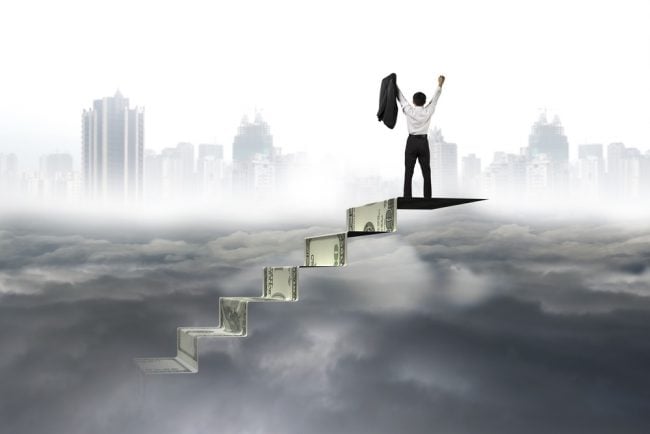WASHINGTON – Consumer confidence in the economy rose sharply in December, a sign consumers see a rosier future for business and job conditions, the Conference Board reported.
The Consumer Confidence Index rose to 93.7 in the latest month from 84.9 in November after three months of steady decline. The month-to-month increase was the largest in almost four years and may be a sign consumers feel they can loosen up on their purse strings.
The November figure was the lowest since 1994 when the index stood at 79.9.
Recommended For You
"The figure is certainly good news; it means economic growth could be stronger than expected," said CUNA economist Bill Hampel.
"We do need to be careful about one month's data, however, because consumer confidence is notoriously volatile."
Hampel noted that, even with the latest improvement, the index is still far below the 140 of a year ago before the economy began to decline.
The monthly figure compiled by the independent, New York-based Conference Board is based on a survey of 5,000 US households. It is regarded as a good predictor of consumer spending, which makes up 2/3 of the nation's total economic activity. The refusal of consumers to stop spending is generally credited with keeping the economy from falling into a far deeper recession.
Lynn Franco, director of the Conference Board's research center, said the huge increase in the December index could mean the worst of the recession is now over. "The deterioration in economic conditions appears to be reaching a plateau, led by a stabilizing employment scenario," she said.
The US Labor Department reported new claims for unemployment insurance rose by a seasonally adjusted 7,000 to 392,000 in the week the Conference Board index was released. Although the figures were still headed upward, the increase was still considerably less than economists had anticipated.
"I've been saying all along that consumer spending would hold up," said NAFCU economist Jeff Taylor. "As long as a person has a job, they are not going to curtail their spending."
The latest index, when taken in the context of other positive economic news, means the economy is on track for recovery in the second quarter of next year, Taylor said. "It looks as if we've finally bottomed out."
Hampel said he thinks the economy is more than halfway through the recession that officially began in March last year. "There's a reasonable chance we'll see positive growth in the second quarter," he said. "I'm quite positive the first quarter of this year will not be as weak as the fourth quarter (of 2001)."
The employment outlook also improved, with 16.1% reporting in December that they expect more jobs to become available in the next six months. Those who thought there would be fewer jobs dropped sharply in the latest month to 19.3% from 26.3% in November.
Economists agree that the recovery is still fragile and could easily be damaged by another terrorist attack. "If they manage a terrorist attack that actually works, it will add another quarter to the recovery because of the effect it will have on consumer confidence," said Hampel.
November new home sales rose 6.4% to a seasonally adjusted annual rate of 934,000, thanks to unseasonably warm weather and low interest rates. Sales moved at their fastest clip since March and saw the highest month-to-month percentage jump since December 2000.
Credit unions can count on continuing to make mortgage loans in 2002, Hampel said, but the refinancing binge is over because of increases in long-term interest rates. "Mortgage rates are still a good deal and will continue to fuel home buying, but the refinancing boom is over," he said. If consumer confidence holds up, he said, credit unions can expect other types of lending to increase "across the board."
© Touchpoint Markets, All Rights Reserved. Request academic re-use from www.copyright.com. All other uses, submit a request to [email protected]. For more inforrmation visit Asset & Logo Licensing.






